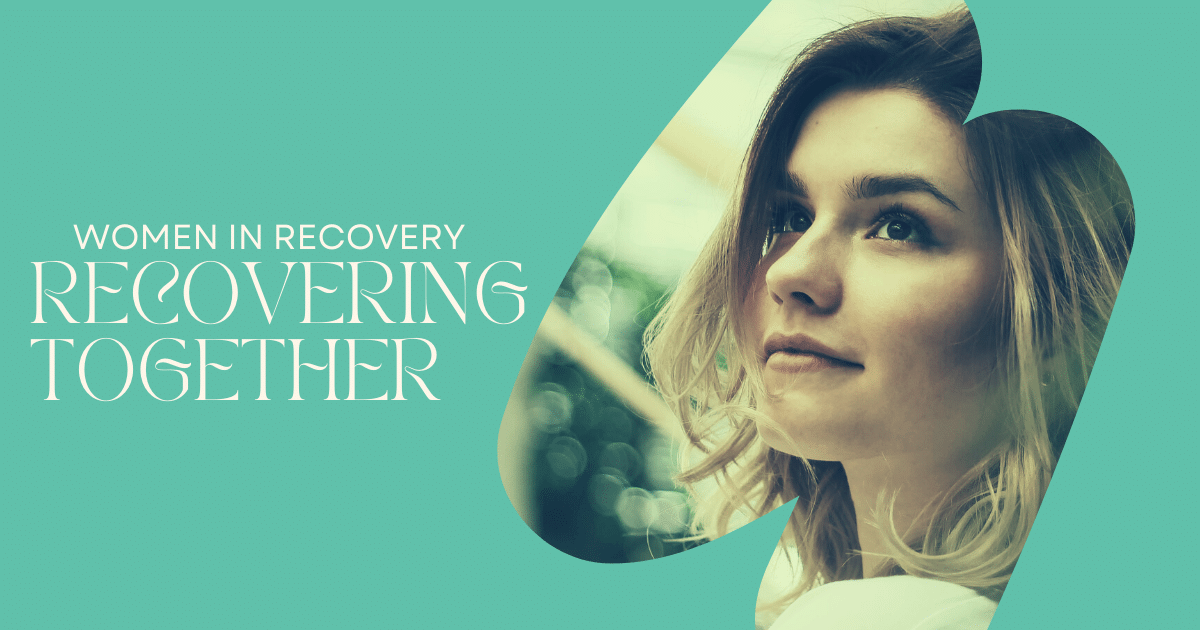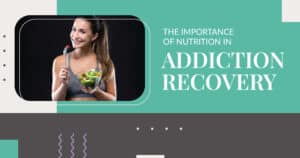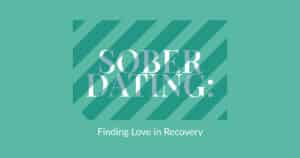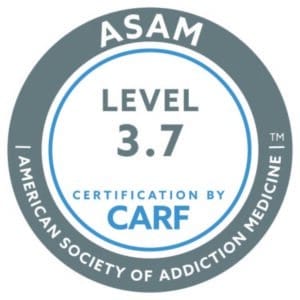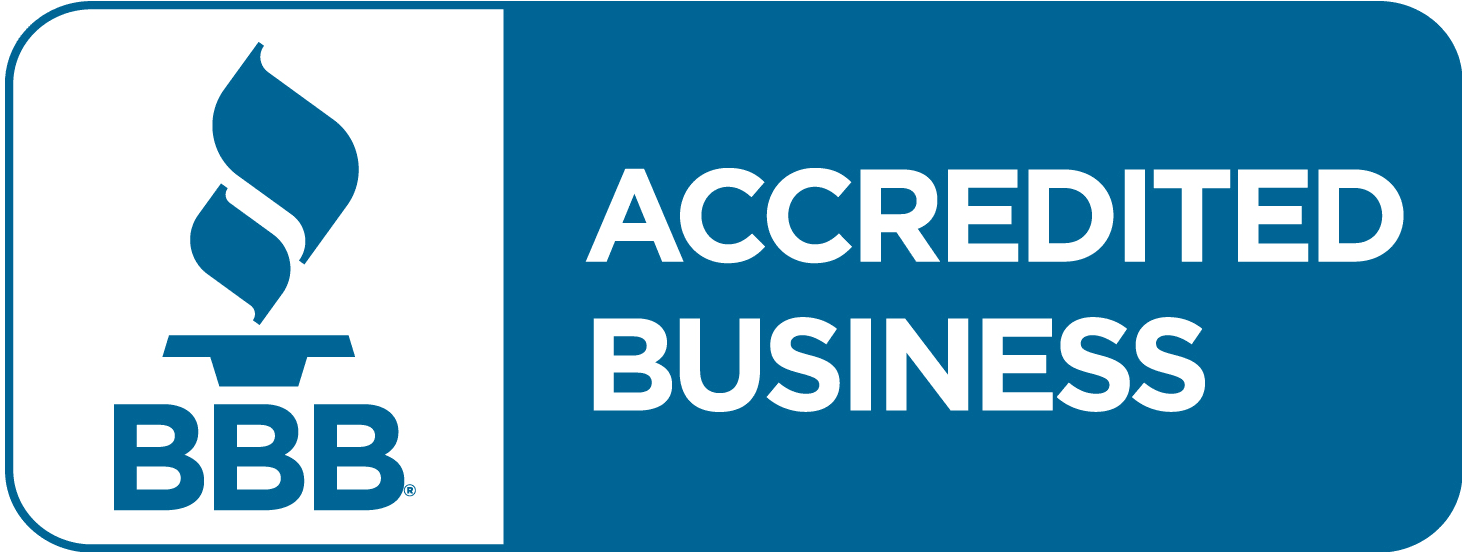For women in recovery from a substance use disorder, recovering together and a sense of shared social support is critical. Everyone in recovery from alcohol abuse or drug addiction benefits from a strong support network, but research shows it can be especially important for women.
No matter how you find that support system, it can make an enormous change in your quality of life and significantly reduce the likelihood of relapse.
What is “Recovery”?
The term recovery is one where you are improving your wellness and health. When you’re in recovery, your life is self-directed, and you are working to reach your potential. No matter how severe or chronic their substance use disorder is, anyone can recover and begin to regain their sense of functionality in all areas of their life.
We tend to view recovery as only relating to abstinence from substances when it’s much more than that. When you’re in recovery, yes, you abstain from substances, but you can also experience a positive lifestyle.
Even when you face stress or difficult challenges, you can deal with them without using substances. You have healthy coping strategies that you can rely on in your life.
To get to this point of recovery, you very often need a structured treatment program.
There’s no one definition we can use for recovery for every person. Addiction is unique to the individual, your experiences, and your mental and physical health. Your recovery experience and mental health treatment are also particular to you.
There’s not a standard definition for the term in the addiction community.
The Substance Abuse and Mental Health Services Commission (SAMHSA) describes recovery as a process of change where you’re working to have a self-directed life. SAMHSA also outlines dimensions of recovery support. These are health, home, purpose, and community. The SAMSHA working definition includes ten principles supporting the definition of recovery. These include:
- Recovery comes from hope
- It’s person-driven
- Recovery can occur through many pathways
- It’s holistic
- Your recovery is supported by allies and peers
- Your relationships and social networks support recovery
- There are culturally-influenced aspects of recovery
- Recovery is supported by addressing trauma such as sexual abuse
- The individual, family, and community play a part in recovery
- Recovery has a basis in respect
Some mental health and addiction treatment specialists believe there are “rules” that can help you reduce your risk of relapse.
- One is that you change your life. The concept here is that your recovery is formed around creating a new life. In this new life, you form healthy relationships, enjoy sober activities and fun, and find ways to manage stress in your life without drugs or alcohol effectively.
- Honesty is a “rule” in recovery. When you have a drug or alcohol use disorder, it’s often shrouded in dishonesty toward yourself and others. As you’re in recovery, you learn to be truthful with yourself and the people you care about and deal with your past dishonesty.
- You ask for help in recovery. This is where the idea of recovering together becomes relevant. For example, you might look for a self-help group for women in recovery so you can support one another and raise the likelihood of long-term recovery.
- Finally, another rule of recovery is making time to practice self-care. When you care for yourself physically and mentally, you’re showing yourself kindness, and you’ll be better prepared to deal with stress.
Self-care is an important part of not just addiction recovery but also coping with mental health issues such as depression symptoms.
The Importance of Recovering Together
For women in recovery , one of the most critical things is social support. When you’re in recovery, navigating a new life of sobriety can be isolating. You may have to end relationships with people who are no longer in line with your goals for yourself. You may have to remove yourself from the situations you were in previously, and that means you could find yourself with limited social support, at least at first.
It doesn’t mean you have to be alone as a woman in recovery. You may have to be willing to invest your time into developing a new social network.
Evidence and research show us that when you surround yourself with people who positively influence you and have a strong network of social connections, you have a greater chance of staying sober.
When you have social support and feelings of community, it helps you feel included. Other benefits of social support for women in recovery include:
- Less loneliness means less stress
- You have more of a sense of security and safety when you have a strong interpersonal bond with others.
- Having a social network can improve your sense of purpose and optimism and help you see improvements in depression.
- You can gain perspective beyond your own life.
- Recovering together with other women can help you break down the stigma you feel about addiction.
Social support can take so many different forms. There’s no one way to go about recovering together with other people. You also don’t have to go to female-only rehab centers to find a support group of women, for example.
Maybe you have online meetings in a virtual support group you rely on when you’re feeling challenged in your life.
You might go to 12-step programs like Alcoholics Anonymous or Narcotics Anonymous.
There are also non-12-step programs where you can create a social network, like SMART Recovery.
If you do go to a rehab program, you’ll also meet people with whom you can bond and form relationships. You’re all sharing your stories and experiences and finding common ground. These relationships and bonds can far outlast your actual treatment program.
Your social support network can also include a therapist, spiritual advisor, or sponsor.
Your long-time friends and family can continue to be part of your social support system, as long as they’re not part of your past experiences with substance abuse.
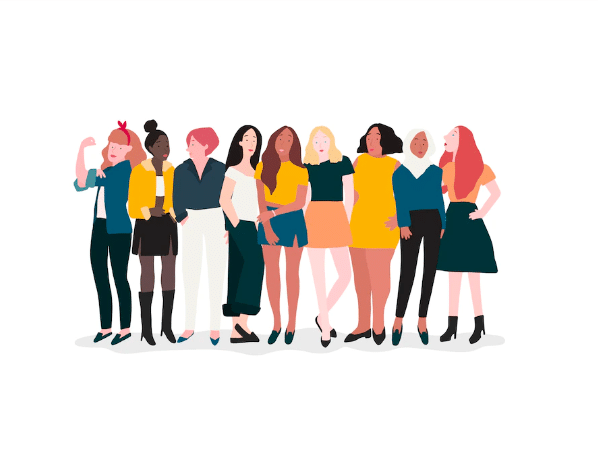
Women Tend to Heal Better in Group Settings
When we talk about recovering together, it seems especially important for women in recovery.
- For women, there’s value in learning and growing together. When you’re together and interacting with other people through shared experiences. You become more open and receptive to other people. This can help improve your confidence and self-esteem.
- Being in a group setting also helps reduce feelings of guilt and shame. For women dealing with substance use disorders, levels of guilt and shame are often extremely high—more so than is the case with men.
- Women understand unique elements of what their life is like. They are often family caregivers, which makes them worried about leaving for treatment for their active addiction issues. Being an informal caregiver or taking on the role of primary caregiver are big reasons women don’t get help for mental health disorders and addiction in the first place, according to current study results.
- Women are often more committed to their recovery when a supportive network of women surrounds them. When you’re with other women, you can create your own safe spaces to explore who you are and who you’re becoming without fear or judgment.
- Women also tend to share common co-occurring disorders and conditions, such as depression, symptoms of anxiety, and trauma. Women are more likely to have a traumatic event or series of events like domestic abuse in their lives that then contribute to their addiction to drugs or alcohol and the development of emotional disorders and mental health conditions.
It’s not just women who benefit from recovering together, of course, but there are unique spiritual and emotional bonds that they can experience when sharing their recovery with one another.
We encourage you to explore the freedom recovery from addiction can bring to your life. Contact Opus Health, a gender-specific treatment center in Newport Beach, CA, to learn more. Give us a call 855-953-1345.
